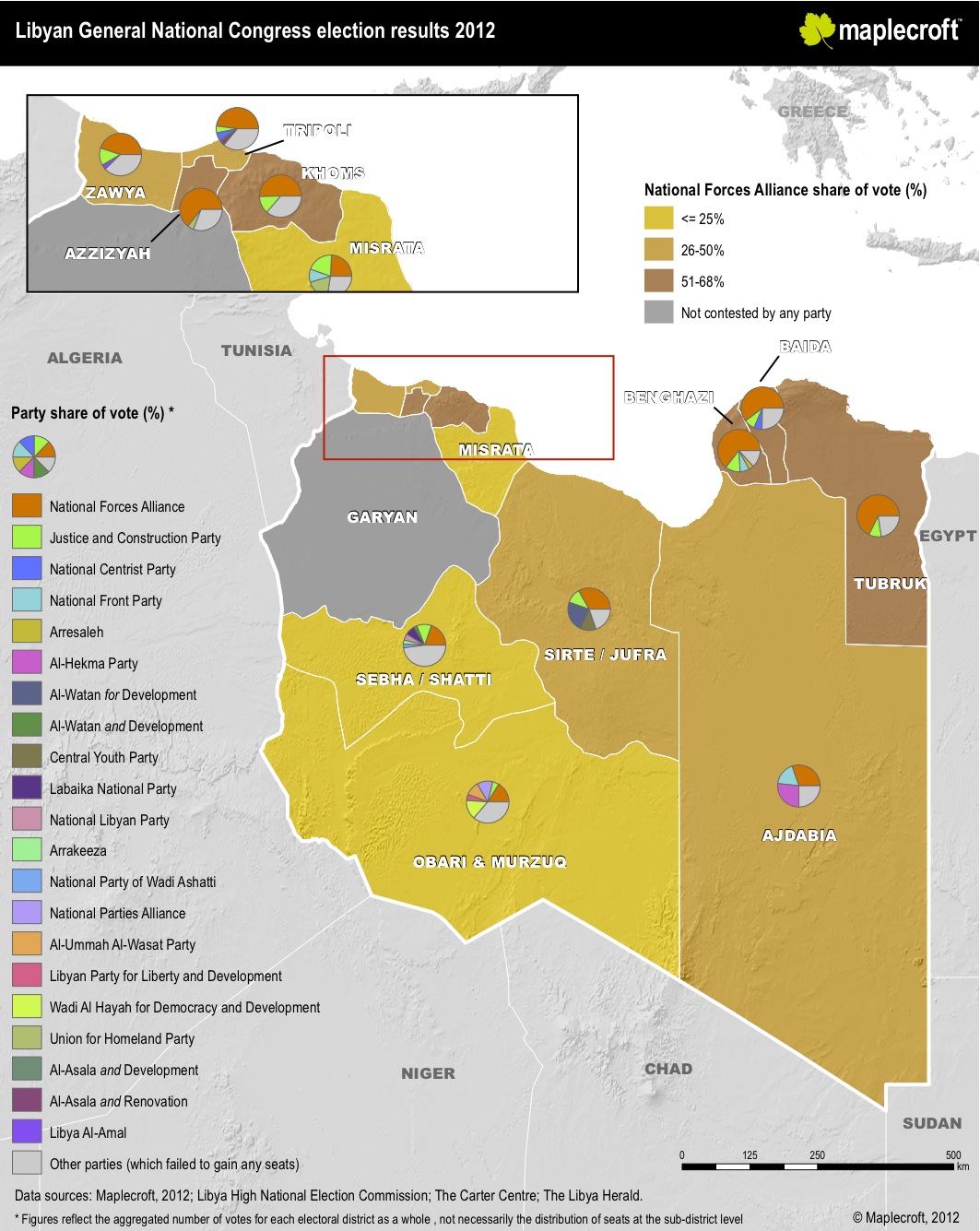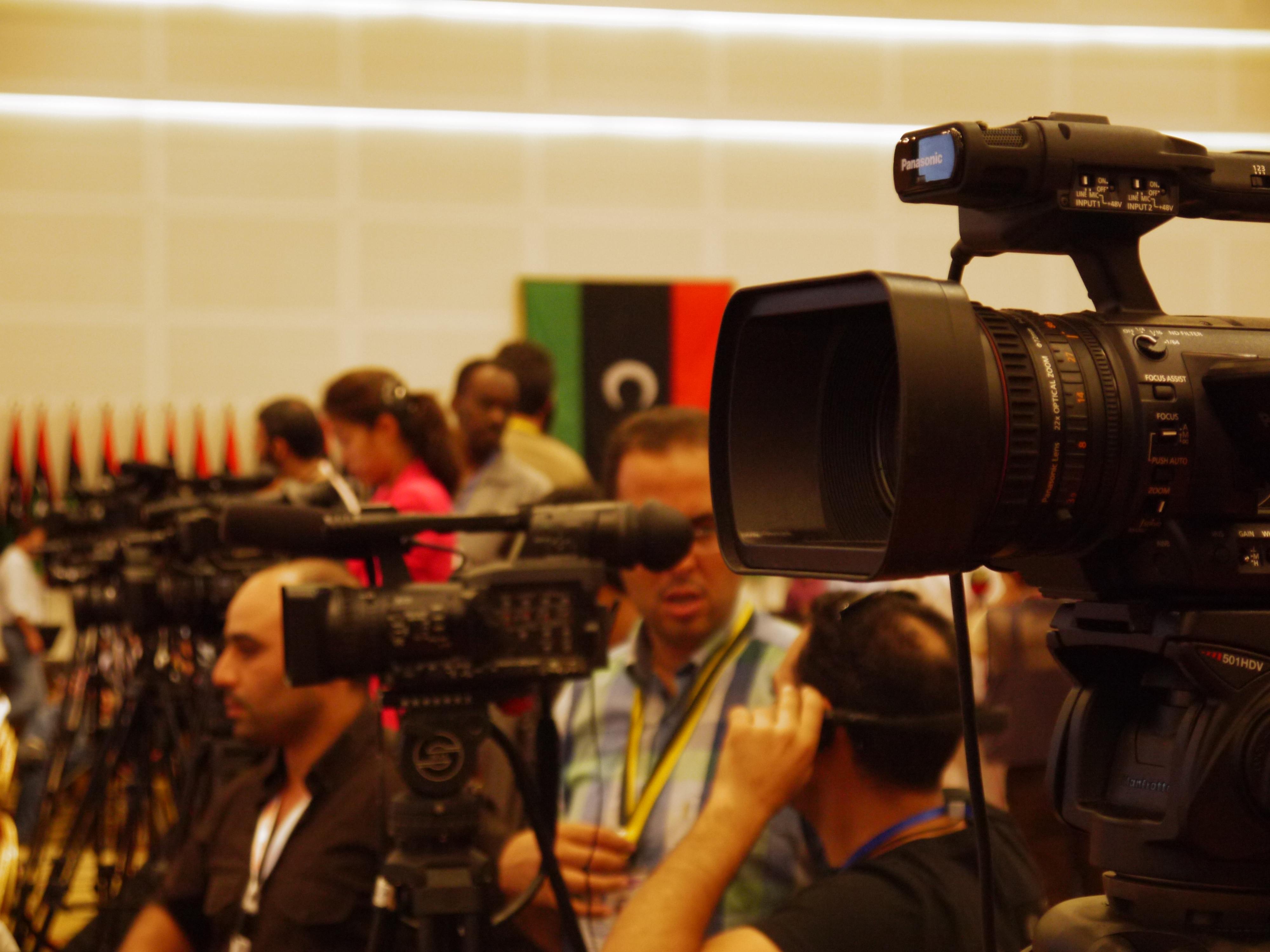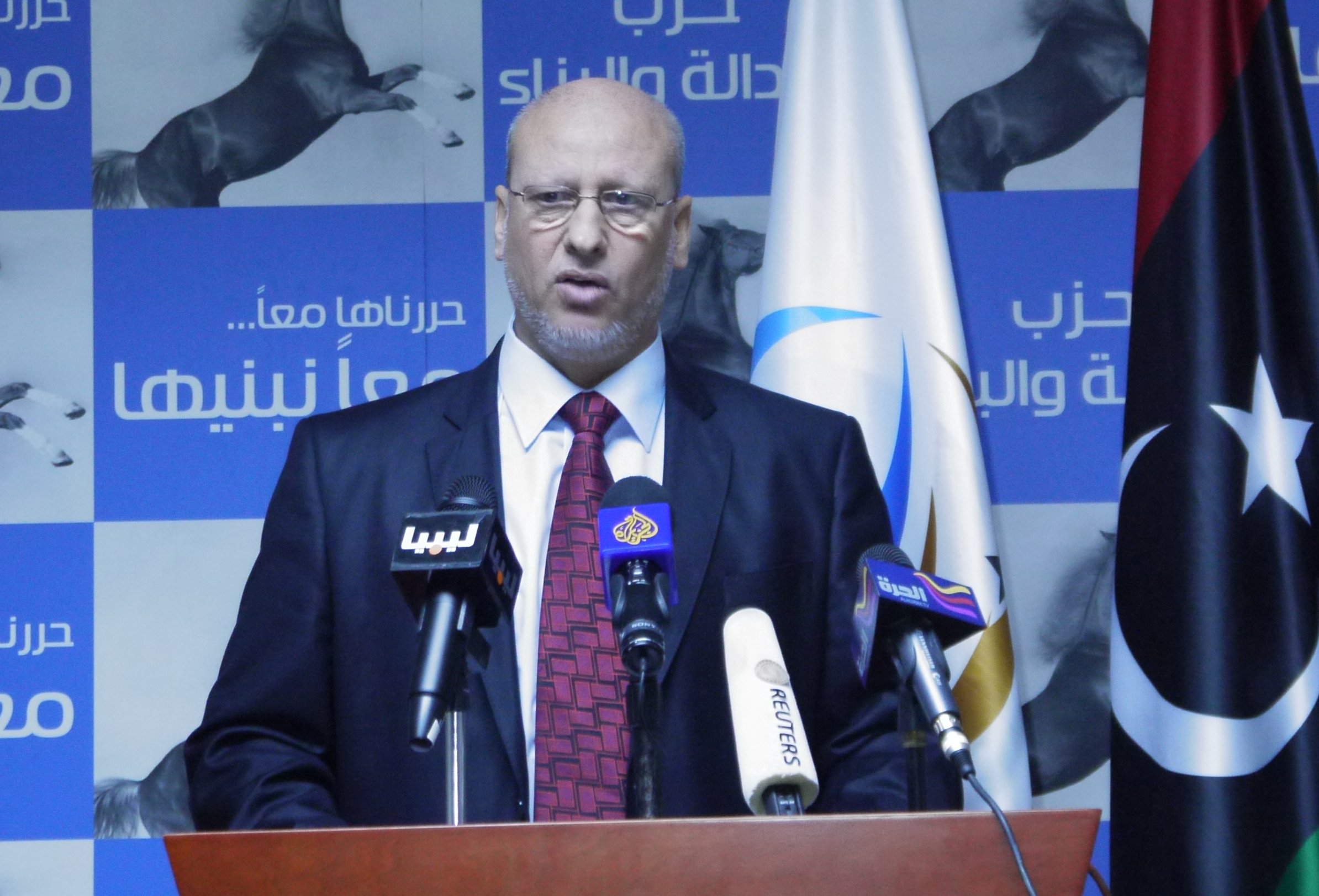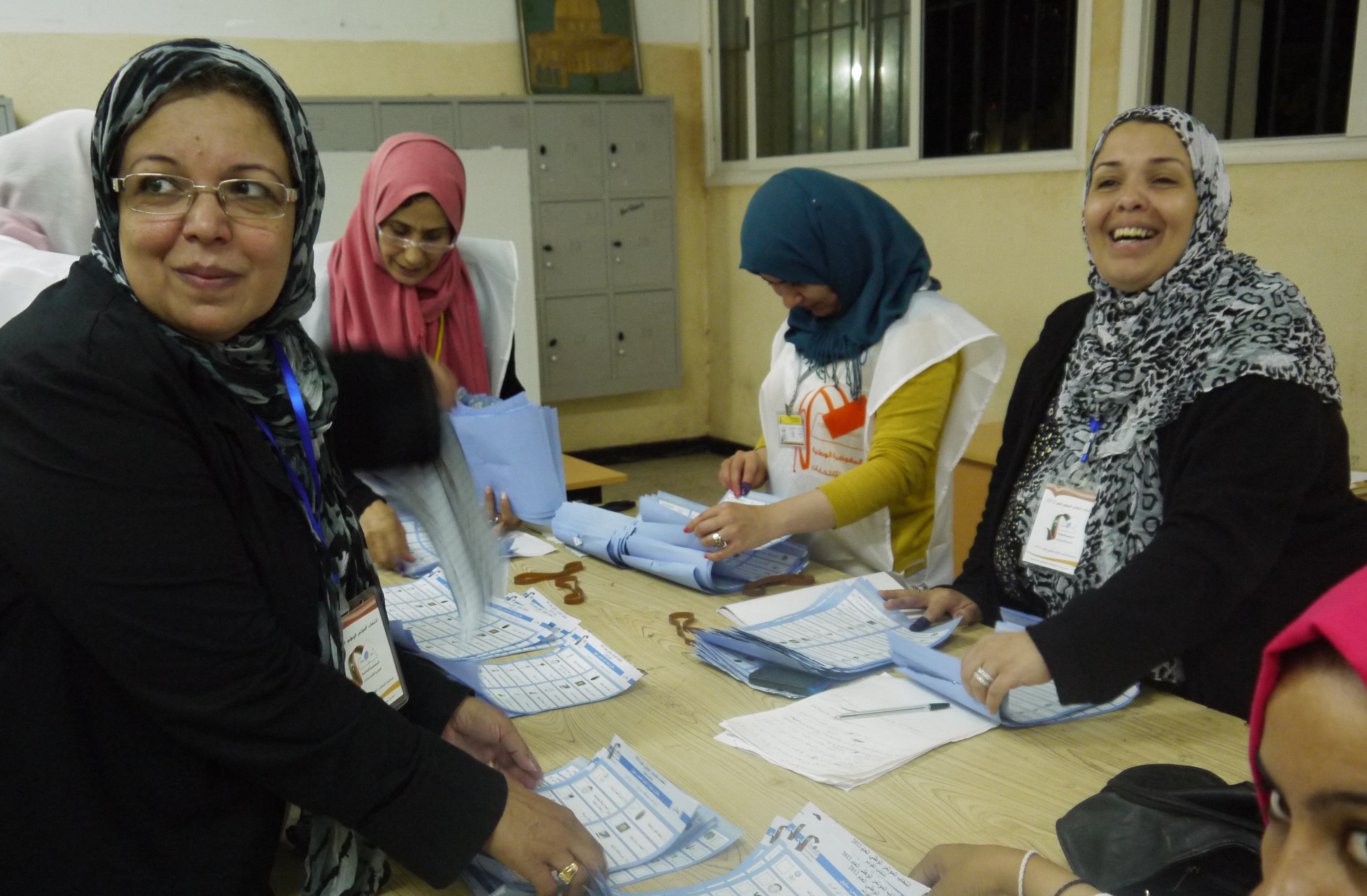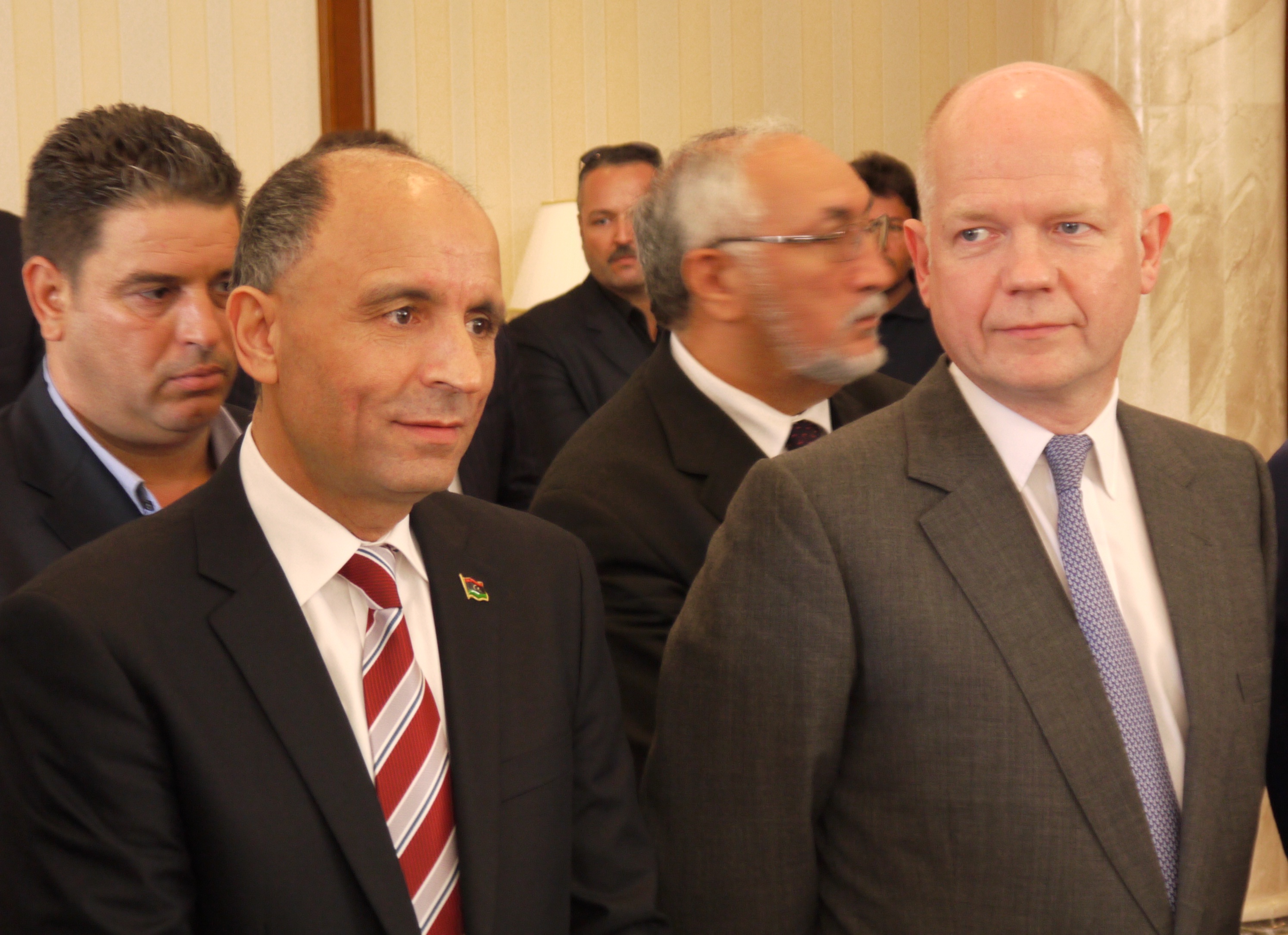By Umar Khan.
Tripoli, 16 July:
The results of the first elections of Libya in over four . . .[restrict]decades have been emerging gradually and there almost certainly will still be major surprises ahead. There has already been a one big one. Before the poll, it was widely expected that the Muslim Brotherhood-linked Justice and Construction Party (J&C) would emerge as the largest party in the National Congress.
However, it is now clear that Mahmoud Jibril’s National Forces Alliance (NFA) is leading in the party lists and will have the lion’s share of the 80 seats reserved in the congress for political parties. In several constituencies, it took as much as ten times the votes won by J&C which came a poor second.
However, after subsequent predictions that Jibril’s National Forces Alliance (NFA) would therefore gain a majority in the 200-seat congress, the picture that is emerging in regard to the 120 seats reserved for individual candidates is rather different. Candidates linked to other parties and genuine independents appear to have won the majority there.
These 120 seats are likely to determine the fate of the future congress.
The results of the party list seats have clearly surprised the J&C leadership. They say they were unable to effectively counter 42 years of propaganda by Qaddafi that portrayed them as traitors and extremists. They accept the fact that they did not win as many seats on party lists as they expected but also claim they are confident of gaining the same number of seats as the NFA because of the success of their individual candidates.
According to Amin Belhaj, member of the J&C’s executive committee, the surprise was not how well the NFA performed but how poorly some other large parties did. He said: “The surprising factor is how some big parties didn’t get as many seats as expected. NFA’s performance on the party lists is good but it won’t affect the ultimate standings as the party-lists only make up 40 percent of the total seats.”
The Nation Party performed extremely badly despite an aggressive electoral campaign. It seems to have won at most only a couple of seats on the lists, and possibly none at all. However, the leadership claims it will have a reasonable number of seats, thanks to their individual candidates. Abdul Hakim Belhaj, the most prominent member of the party failed a seat, according to the incomplete initial results.
Mohammad Ghula, a member of the Nation Party’s preparatory committee, blamed the poor performance on misinformation about its members. He said that the strategy of focusing on the party’s programme rather than dealing with the misinformation had not worked.
The National Front Party, led by Mohamed Yusuf Magariaf, also performed poorly on the party lists, coming a distant third but is likely to emerge as a key player in the Congress as many of its individual candidates have won.
Magariaf has said that the party would remain a separate entity in the Congress, ruling out any alliance with any other party but also said that the party would be open to collaboration with all other parties for the sake of the country.
Several of the other political parties with different ideologies but opposed the Mahmoud Jibril’s NFA say they are now working closely on an alliance to establish the majority in the congress and pave the way for a unity government that excludes the NFA from power. If formed, it will be called the “nationalist” alliance. However, it seems unlikely it will achieve the necessary numbers for a clear majority given that NFP’s announcement that it will not be part of any coalition in the National Congress.
The question of who will hold the power in the congress is more than just a numbers’ game. The majority of individual candidates are already linked to various parties. The number of genuine independent candidates is not confirmed but regardless of their numbers, they will probably align with the party that is closest to their ideology.
The composition of the congress will remain unclear until the official announcement of the results by the electoral commission. The NFA is likely to remain as a separate bloc in the congress, as their call for the grand coalition has not found any support among other parties, at least not yet. With the other parties working to form the “nationalist” alliance and NFP’s decision not to join any coalition it will be hard to establish the majority in the first elected congress of Libya.
Umar Khan can be found on Twitter at www.twitter.com/umarnkhan
[/restrict]
